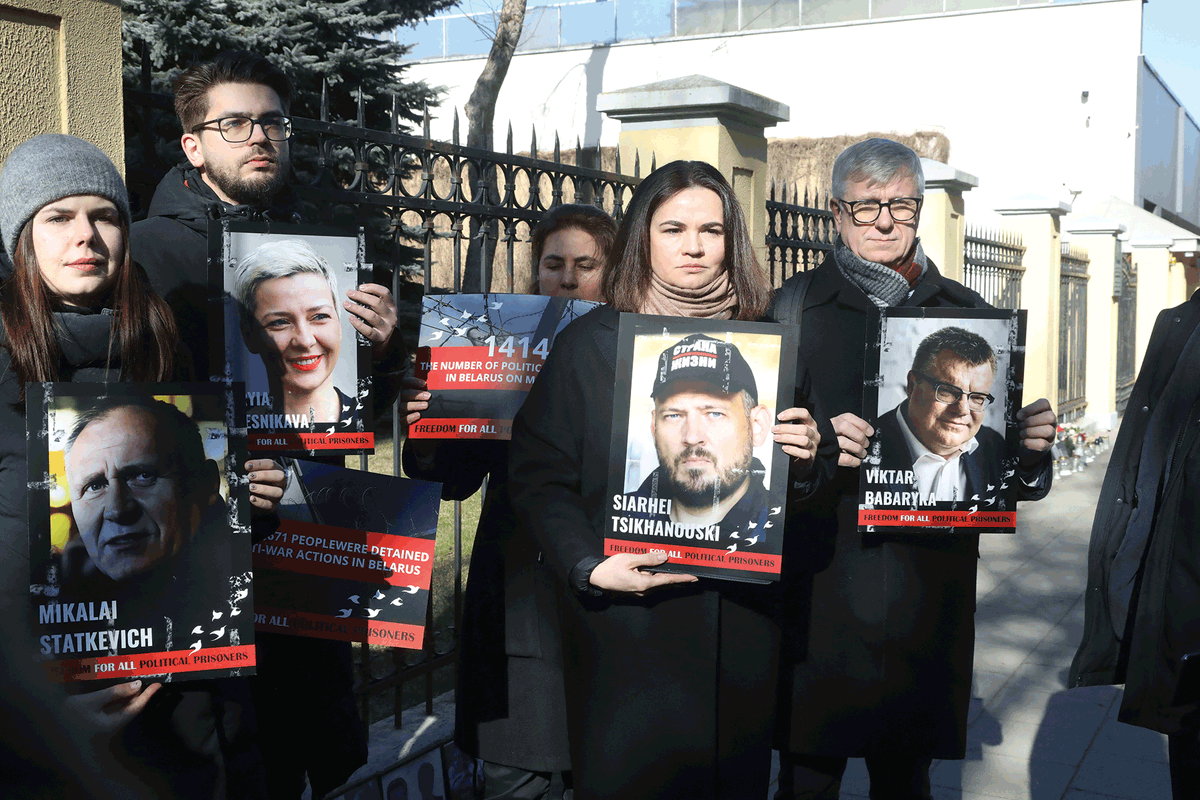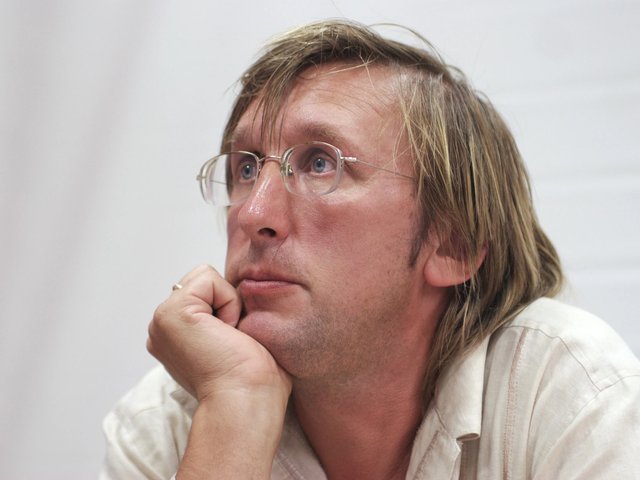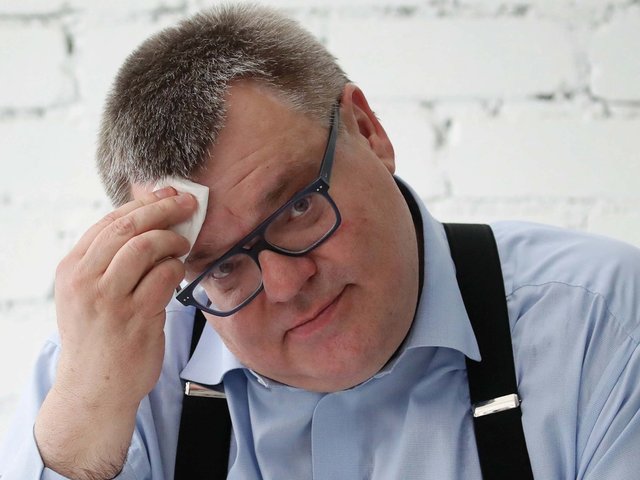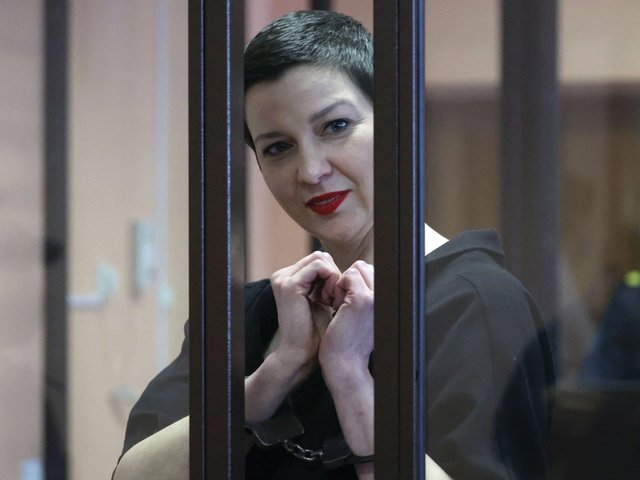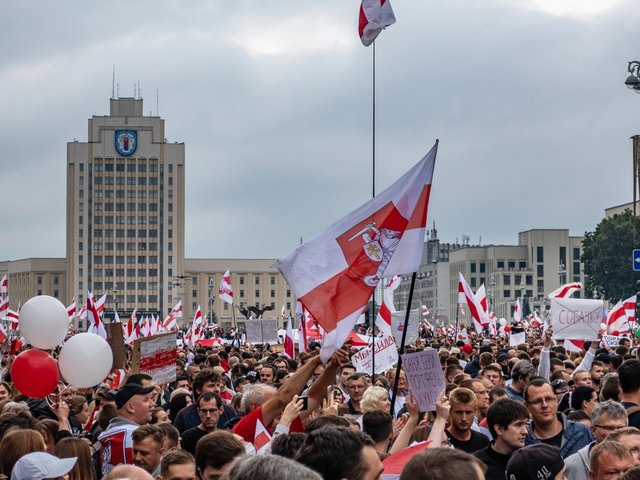In August 2020 election fraud by the Belarusian dictator Alyaksandr Lukashenka [often spelt Lukashenko] led to mass protests. Four years later, he is still in power and the cultural activists who led the movement against him remain in jail.
The fate of imprisoned Belarusians received renewed attention following the mass prisoner swap in July between Russia, the US and other Western countries, which did not include any citizens from the former Soviet nation.
Viktar Babaryka, a banker and art collector, declared his intention in May 2020 to challenge Lukashenka, and was soon arrested. He was sentenced in 2021 to 14 years in prison on corruption charges and since 2023 has been denied contact with his family and lawyers. Babaryka, who had been the chairman of Belgazprombank, an affiliate of Russia’s Gazprombank, was known for his collection of works by artists with Belarusian roots, including Marc Chagall, Chaïm Soutine and Dmitry Stelletsky, which he had largely acquired at Sotheby’s, Christie’s and MacDougall’s.
Brutal prison conditions
His son, Eduard, a cultural manager who worked on Babaryka’s presidential campaign, was arrested along with him and sentenced to eight years in 2023, with further time recently added to his sentence.
Babaryka’s campaign manager, Maryia Kales-nikava, an artist, musician and art director, was a member of the opposition Coordination Council that led the 2020 protests before her arrest in September that year. She tore up her passport and refused to leave when Belarusian security forces tried to expel her from the country. In 2021 she was sentenced to 11 years in a penal colony for causing harm to Belarusian national security and conspiracy to seize power. Kalesnikava is in poor health, has been subject to brutal conditions and held in solitary confinement, cut off from the outside world.
People have been imprisoned for years in inhumane conditions, they are tortured, they are dying, losing their health
Other artists among current Belarusian political prisoners include Ivan Viarbicki, a designer, cartoonist and video editor, who in July had two additional years added to his ten-year sentence on charges including “incitement to an act of terrorism” for alleged calls to attack a Belarusian KGB building with Molotov cocktails.
The Minsk-based Viasna Human Rights Center listed 1,379 political prisoners in Belarus as of 16 August. According to PEN Belarus, which chronicles the cultural impact of political repression in online posts, “at least 163 cultural figures, including no less than 38 People of the Word, were behind bars as of 15 July 2024”.
Promoting links with Russia
Taciana Niadbaj, a writer, poet and translator who is the president of PEN Belarus, working from exile in Poland, tells The Art Newspaper that the Belarusian state fills the cultural scene with ideologically driven events that promote loyalty to Lukashenka and friendship with Russia, including “justifications of the war in Ukraine and narratives of a ‘unified country,’ shared history and culture”.
The Babarykas and Kalesnikava, she says, promoted “independent culture, free from propaganda and ideology”, which is key to developing “Belarusian identity and a guarantee of Belarus’s independence”. This alternative culture still exists “in the form of private gatherings, theatrical, musical, literary initiatives, historical events”, in Belarus, she says, “under conditions of severe self-censorship” and among exiles abroad.
Future prisoner exchanges should be prioritised, Niadbaj says. “The issue of political prisoners must be the first on the agenda in all negotiations. People have been imprisoned for four years in inhumane conditions, they are tortured, they are dying, losing their health, missing their children’s childhood and their parents’ old age.”
However, she adds: “We must recognise that not enough has been done and not as effectively as it could have been. The [prisoner swap] in early July showed that there are underutilised means and methods that should now be prioritised. Saving even one human life is important.”


